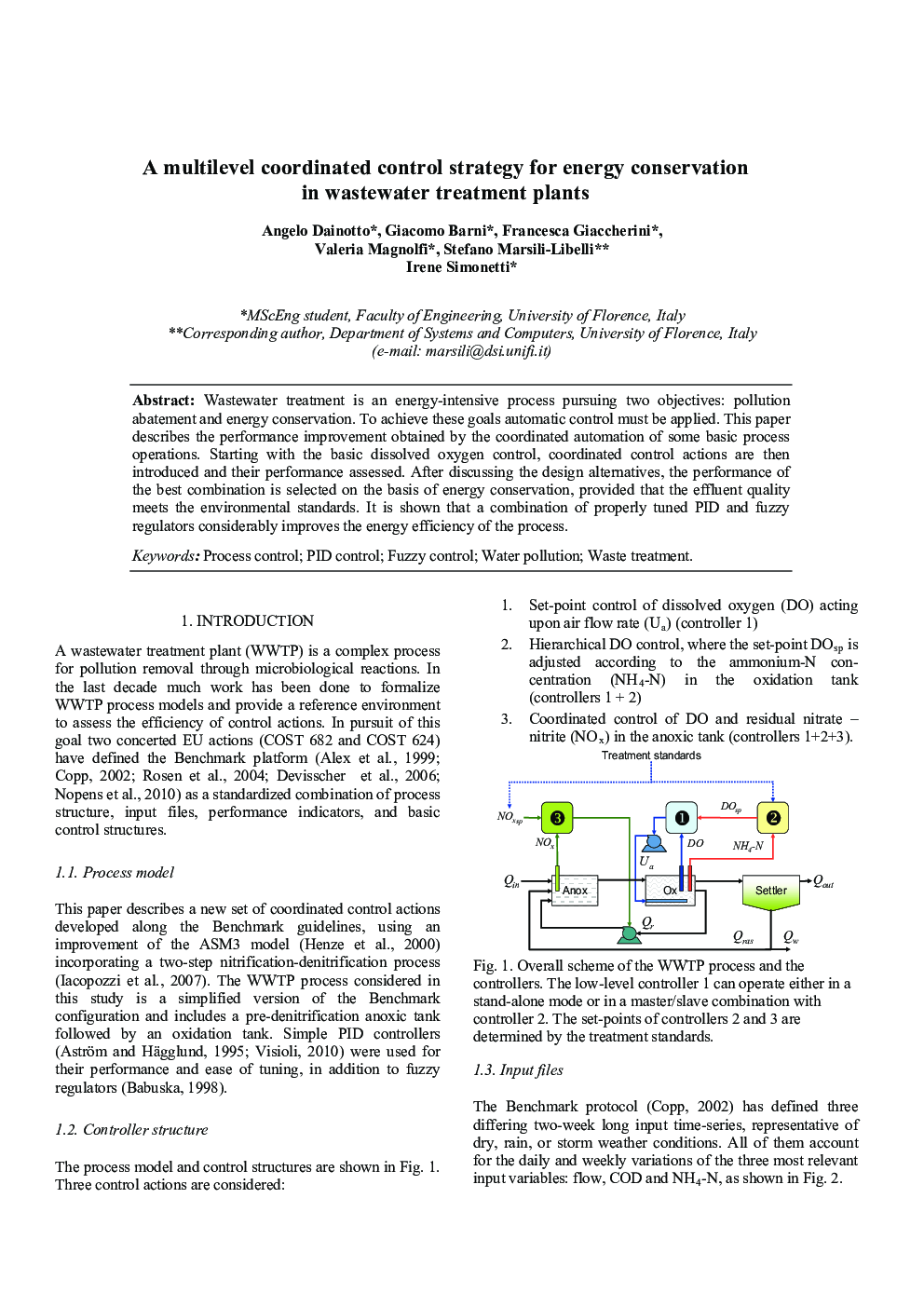| Article ID | Journal | Published Year | Pages | File Type |
|---|---|---|---|---|
| 717251 | IFAC Proceedings Volumes | 2012 | 6 Pages |
Wastewater treatment is an energy-intensive process pursuing two objectives: pollution abatement and energy conservation. To achieve these goals automatic control must be applied. This paper describes the performance improvement obtained by the coordinated automation of some basic process operations. Starting with the basic dissolved oxygen control, coordinated control actions are then introduced and their performance assessed. After discussing the design alternatives, the performance of the best combination is selected on the basis of energy conservation, provided that the effluent quality meets the environmental standards. It is shown that a combination of properly tuned PID and fuzzy regulators considerably improves the energy efficiency of the process.
